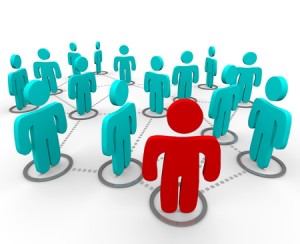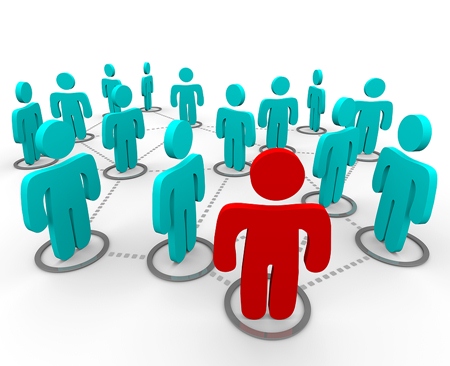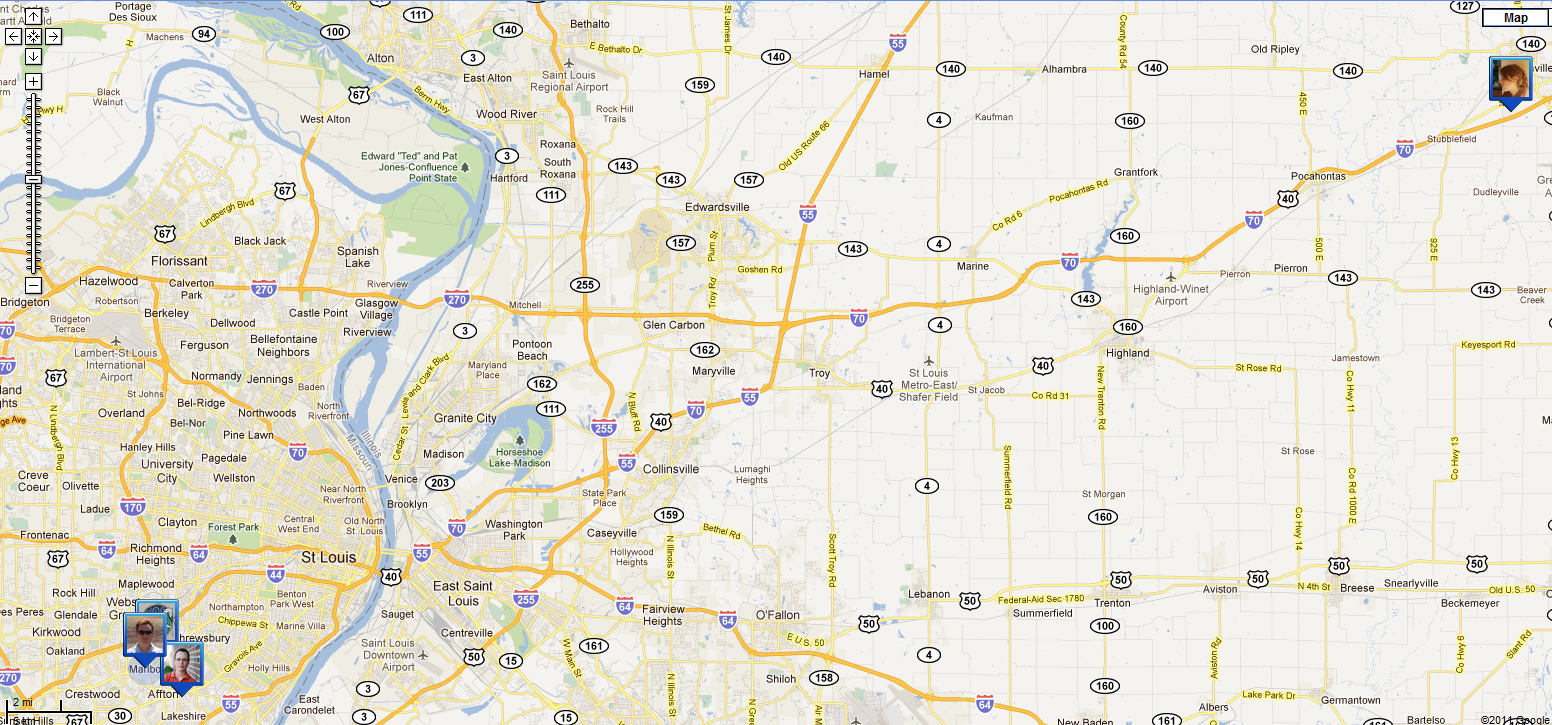Oasis Digital is a sponsor of Strange Loop, again this year. This time the event moves to the Peabody Opera House.
New Office Space
We have relocated to new office space in Chesterfield, MO, a much more convenient location.
Apple the Great!
Market forces bring us to decisions we often would not make on our own. Part of the beauty of our economy and our way of life is the creativity in both business ideas and implementation. Throughout our history men and women have had the opportunity to invent both products and processes. Every once in a while companies get too big for their own outsized egos and we all suffer, this is a necessary evil of freedom. A painful part of capitalism is the correction when a company gains too much influence and starts to force its way on consumers. Either consumers respond and dump a product or the government steps in. Either way is a bit messy.
US History is littered with examples of prideful corporate falls and the technology industry just keeps delivering up near monopolies. We are reading about search abuses by Google. Everyone knows about Microsoft’s tip toeing with the Justice Department. Anyone recall Carrier IQ? Now we get served up a doozy by Apple.
iBooks Author is a great idea. A tool that takes Apple’s strength of making things intuitive and turning it towards the publishing marketplace. We need good publishing tools from credible sources, just like WordPress opened up the world of web design to anyone with initiative, Apple had the same opportunity with iBooks Author. The problem is that if you use the tool then Apple controls your content and it can only be sold through Apple’s marketplaces. This is an amazingly ugly reach that has the industry buzzing.
All Apple had to do was treat consumers with respect. Anyone who creates content deserves the right to that content. At a time when I was starting to relax and was honestly considering buying a Mac, I am going to pause and wait. I have always been hesitant to lock myself into an ecosystem and this latest development renews my distrust. Consumers should not be put into a situation where what they create is controlled by someone else. Just like Apple supports Digital Rights Management (DRM) for content on iTunes, they should support their customers creative rights as well.
We have to remember that these computer systems we use can be broken down into three very separate and important components, hardware, software, and the user. I lump the user into the mix intentionally, it appears Apple does as well. In most computing situations the manufacturer/individual in control of all three of these areas are different. This typically leads to a separation that actually protects consumers from abuse. In the case of Apple they have almost total control of two thirds of the equation, and it looks like they want to control all of it.
Why should we care? Anyone who has ever been stuck in a bad business deal understands why. Usually, once you give up your rights you can never get them back. Just like times when Facebook has over reached with their EULA, consumers need to respond to this breach of trust. This will die down in a short time and most people will go back to life as usual. Here is hoping that industry watchdogs and our government is watching, I think Apple needs to be reminded of their limits.
Giving Your Intelligence Away
 Social networking is now the norm for a majority of Americans. I have talked about some of the relational and social implications of this previously. Living life in the cloud is very convenient, there is a lack of intimacy that is almost numbing. People say things online they would never say in person, and this had led to a number of tragedies documented in the news. There is another major problem with having the majority of your communication and creative efforts online. You are handing a part of yourself over to someone else for safe keeping and you have no idea how trustworthy they are.
Social networking is now the norm for a majority of Americans. I have talked about some of the relational and social implications of this previously. Living life in the cloud is very convenient, there is a lack of intimacy that is almost numbing. People say things online they would never say in person, and this had led to a number of tragedies documented in the news. There is another major problem with having the majority of your communication and creative efforts online. You are handing a part of yourself over to someone else for safe keeping and you have no idea how trustworthy they are.
Data security is an obvious problem that most completely ignore. When servers crash it is not the service provider who cares about your personal or business information. A couple of situations this last year brought this point home to me in a personal way. Throughout the 1990′s I was the subject of a few dozen articles in local, regional, and national publications. These articles were published online as well as in print. Recently I started searching for the articles because they represent a chunk of my professional career. I was stunned to discover most of them were gone. In some cases the publications had been purchased and old content was not carried forward. In other cases they had simply purged old content. In one case the publication no longer existed. In any case my articles were gone, permanently.The second situation involved an online accounting system I had used for many years. As is often the case, we became complacent and did not regularly back up the data. The service provider had a large corruption of data and found that their backups were bad. They lost a year of our accounting data. Fortunately we had all of it in hard copy and most of it available to us in other forms. I will not list the name of the accounting provider here. I can tell you we no longer use the service.Data backup has always been a serious IT issue, one that “bytes” people all the time. It is even more critical in a cloud environment because you have no control over the care and upkeep of the server. You are completely dependent on their business practices. Recently Google had an accidental deletion of thousands of user accounts. All of their data was gone in a flash with no hope of recovery. Cloud computing is like a drug, it feels really good but it can have nasty side effects if not used properly.A second major issue is intellectual property. I know many young people that write songs and post them to Facebook or YouTube. What rights did they click away when they checked that box agreeing to their terms and conditions? Who owns the song? What rights does the service have regarding the content? Honestly there is no way of knowing until a situation goes through the court system. We have not seen how they will “split the baby” on this one. It is the same for poems, love letters, fiction, pictures, movies and opinion. We simply do not know for certain who owns it.After giving it a lot of thought I recommend the following rules when posting to the social web. If it is creative or unique to you then do not post it there. Don’t give your creative self away for free, you never know what might have value down the road. Eventually someone is going to have a top musical hit that was put on Facebook first. When millions of dollars are at stake you do not want a service provider with deep pockets snatching the value away.
Set up your own web site if you can for your creative pursuits. Post your photographic art, musical compositions, and writing there. If what you create becomes popular, there is no question as to ownership. Web sites are easy for anyone to create. Google, WordPress, and Yahoo all have free ways to do this that are easy to use. There are countless others out there also. Back up your site on a regular basis. A traditional approach is have a copy on the web server, a copy at your home, and a copy in a second geographical location. It is really worth it not to lose your information.
So what should you post to social networks? I try to keep it to general conversation with friends, comments on public events and a happy birthday or two. In truth, if it contains substance, I don’t post it. It would be like handing my personal communication to a stranger and asking them to pass it around eventually getting to the intended recipient. I know it might sound old fashioned but there is a level of creepiness to how many people use Facebook et al.
I certainly hope that when it comes to creative rights that the courts decide in the favor of the individual. I am seriously concerned they may not and I feel for whomever becomes the test case on which laws are based. That would be very painful and expensive. I will continue to be a user of all the major social networks for the foreseeable future. In the meantime I intend to be careful and cautious with my intellectual property. This is a case where discretion would be wise.
The Application Age
 Ok, I will admit it, I am completely geeked out right now. I just downloaded the alpha version of the BlueStacks Android app player for windows. Running my android apps on Win 7 is really intriguing to me because it amplifies a perspective I have held for some time. Our lives are no longer defined by what hardware we run no matter how strongly Apple and Microsoft try to push. I can run Evernote, Maps, Gmail, Office apps, Netflix, Youtube etc on any device I want. The difference between owning an ios device or android device is fairly moot already. This power we have as users has never been greater.
Ok, I will admit it, I am completely geeked out right now. I just downloaded the alpha version of the BlueStacks Android app player for windows. Running my android apps on Win 7 is really intriguing to me because it amplifies a perspective I have held for some time. Our lives are no longer defined by what hardware we run no matter how strongly Apple and Microsoft try to push. I can run Evernote, Maps, Gmail, Office apps, Netflix, Youtube etc on any device I want. The difference between owning an ios device or android device is fairly moot already. This power we have as users has never been greater.
I will use the example of Evernote, probably my favorite application. I can grab a snapshot from my phone and it is automatically synced with any other device I own. Within a short time I can pick up my tablet(ASUS Transformer), my Win 7 laptop or login to any computer and my picture is right there. I can annotate over the image on another device and it is synchronized back to my phone and everywhere else I might use it. This is not just cloud computing, this is application centric life. If I want to go purchase an ipad tomorrow I simply download the Evernote app and start using it. Absolutely no hiccups in the process, all of my notes for the last two years are right there. What I was running it on made no difference.
The fear that must be present in certain Boardrooms around the world must be palpable as this realization takes hold. How do they continue to differentiate themselves? Geeks and Nerds will always care, but what about the average person? All they will care about is if they can run their apps. This opens a number of surprising doors and I believe we will see a number of new players jump through them. One door is the barriers to entry for new operating systems is very low. If you can support the open android apps you can play, we are about to witness this real-time with Amazon’s new Kindle offering. Here we have a company with money and content that is projected to be successful with a brand new operating system.
Why? Because it no longer matters. We can laugh at the very competent attempt at owning the world by Microsoft, Apple and Google because we now have the power. Our application choice will drive these companies instead of them driving us. In this new world when we download an app we place our vote and impact our electronic future.
Getting back to my geektastic experience with BlueStacks, I loaded it onto my media center pc. Powerful desktop mounted in my rack running Win 7. We typically use it for TV, DVDs, Netflix, Skype and general group web browsing. I installed the app successfully and I was able to run the various games and news applications that come with the alpha version of the application. Now the fun part, using their CloudConnect software I was able to push apps not preloaded to my pc from my phone. Being the addict, I immediately chose Evernote and pushed it to my pc. Once it loaded I was able to log in and use Evernote just like on my phone or tablet.
Some might say it is no big deal to run Evernote, I can simply download the windows application and roll right along. The exciting part for me is the dynamic of the interface. One of the problems to date with media center pc’s is the interface is built around desktop computing. Complex navigation (a windows norm) and keyboard interaction make it difficult and cumbersome to use in a living room. A phone or tablet interface on the other hand is made for a less granular input. It is optimized for the type of input you would use with a wireless mouse or controller. In other words it is easier to use android apps running on Win 7 than it is to use the native windows app. I found this to be true for Google Maps, Tweetdeck and others also. The interface was fast, clear and easy to use. What a novel idea.
Many have heard me lament our servitude to the benevolent dictators at Microsoft and Apple. I truly believe those days are numbered and we are entering a new age. Not just a cloud computing age but the “Application Age” where we will be able to influence our future more directly. We will simply not use poorly made applications. We will no longer be force fed a way we must interface with our information. What an exciting time, I cannot wait to see what great applications bubble to the top!
The Price of Privacy
Recent generations are placing less and less value on privacy. Increasingly intimate social networking systems are coming into play. Where is the limit? Or will we simply stop having any limits at all? The chaos that comes with a lack of rules and social mores is a consequence I hope we can avert.
The first step is to begin teaching what is appropriate in social communication and what should be left to private messaging. With our current generation we have a group that cannot comprehend why they would not post every thought that occurs to them. They look at me wild eyed when I let them know they do not own the content they place on facebook and other sites. They have no comprehension of the impact their crude language could have when they apply for a job. They do not grasp the impact lewd pictures of themselves with various partners can have on their future spouse.
Communication is key. If we regularly speak with the teenagers in our circle of influence this can change. This is a possible life changing point of impact. You could be saving their marriage or helping them to protect their intellectual property. If you were ever looking for the perfect segway to meaningful conversation with a youth, here you have one. I cannot stress enough that they do not have any sense of these consequences. As I have seen with my own children, they also need regular reminders.
When you post on facebook, you give them rights to whatever you have posted. There is not a limit to how personal it is. In addition, even deleted information is retained and can be sold to future interested parties. If you write a song and post the lyrics and video to your facebook account do you still own it? At best it is an unanswered question that to my knowledge has not been played out in the courts system yet. Facebook is not the only one. Google and Microsoft track your browsing history. Apple, Google and wireless providers track your location. Netflix & Hulu track what you watch. Every aspect of your online activities are tracked and logged in enormous databases that companies hope to mine for profit in the future.

When we “give up” our information to these sites we are making a conscious decision. We feel the ease of communication is worth the price of our privacy. This choice applies to all of us and we should make it carefully. There is an argument that we are anonymous in the masses of people doing the same thing. This probably is true until the spotlight is on you and everything you have done is search-able and open to interpretation.
Privacy compromise is even in places we do not expect. When you sign on for wireless at a local coffee shop you are sharing that with many others. Your computer is then in direct communication with them in the same way your computers access each other at your home or work. There are applications that allow for the attack and compromise of computers. These are available in your favorite application marketplace and many more destructive applications are available on the web in general.
This is a complex problem and very few people are literate enough in technology to truly protect themselves. I do not believe it is the problem we need to solve. The issue we face is the devaluing of our private lives. We need to re-enforce this concept in our own lives and raise our children with a greater consciousness of their actions. We need to raise the price of privacy before it no longer exists
Crafting a Summer Intern Program
Inspired by Fog Creek’s summer intern program, for the last few years we’ve (occasionally) thought about a summer intern program at Oasis Digital. We’ll going to try it out this summer, with a single intern; a more substantial program is possible in the future.
Serious Work
When some people hear (or say) the word intern, they imagine someone who makes copies and fetches lunch. Perhaps in some work cultures that is helpful, but here we have in mind serious work. Our interns will work on serious work:
- Projects that are helpful to our company operations
- Exploratory programming, to try out ideas that don’t yet warrant commercial attention
- Open Source programming, such as improvements to tools we use
- Perhaps even a few bits of our real customer projects
The kinds of work could include…
- writing software
- testing software
- reading and writing about software
- marketing work around the software
Twofold Purpose
The purpose and goal of our internships will be:
- Educate and enlighten the intern
- Hopefully also create something useful to Oasis Digital and its customers
Paid vs Unpaid Internships
Many companies are eager to get free help from interns. But it’s clear from a few minutes research that a for-profit company with an intern working on potentially valuable project, must pay. Therefore, we will only offer paid internships.
Location
The internship work will be conducted at our at Oasis Digital office; interns must live in the St. Louis metro area.
Can I Apply?
Sorry – No. We’ve already selected an intern for our trial-run 2011 program. If we decide to continue and expand it for 2012, it will be announced in the spring (of 2012).
Oasis Digital sponsors Strange Loop 2011
Oasis Digital is a sponsor of Strange Loop 2011, an amazing software conference in October 2011. This year the event is being held in downtown St. Louis, next to the ballpark.
Oasis Digital is Hiring
Oasis Digital is again (still) hiring.
Oasis Digital sponsors Clojure Conj
Oasis Digital is a Gold Sponsor of Clojure Conj, the first major conference dedicated to the Clojure programming language. The event takes place in Durham, NC on October 22-23.
Oasis Digital is Hiring
Oasis Digital is now hiring.
I Admire the Ruby Community
Over the last year or so, I’ve spent perhaps 50 hours rethinking what kind of business Oasis Digital should be. I’ve studied business models. I’ve made spreadsheets. I’ve looked around that numerous other consulting firms. The results of all that… are slowly emerging. Stay tuned. In the meantime, though, I noticed something very interesting: the firms that appeal to me most, in terms of web site content, community involvement, portfolios, marketing approach, etc., are disproportionately Ruby or Ruby-Rails shops. I admire the “vibe” of the Ruby community:
- Strong focus on design, to the extent that some Ruby-centric development firms have web sites which could pass for visual-design firms instead.
- Ruby developers seem unusually aware of the extent to which syntax and conciseness matter.
- There is much discussion of craftsmanship, though I’d need to survey a broader swath of production code to determine whether this discussion has a basis in reality.
- Seemingly contrary to the above factors, Rubyists also appear to be unusually pragmatic.
- This pragmatism translates to real-world financial impact: many developers make a good living with Ruby, and many firms are very happy with their Ruby projects.
- Ruby events are numerous, nationwide.
There are numerous Ruby- or Ruby-Rails-centric development firms, and Oasis Digital is not one of them (we are perhaps a 5%-or-so Ruby shop, with Ruby expertise to effectively attack automated sysadmin, integration projects, and so on). We aren’t going to become a Ruby-centric-firm, either; and there are some technical aspects of Ruby that don’t impress me. Rather, we want to bring some of the cultural qualities seen in the Ruby community, to other languages and tools. We care about design much more than most firms, and it shows in GUIs we create. We care about user experience, and we are obsessed with quality, working results.




